The Anchal Project started out as a small group of students passionate about designing change for oppressed women. The project now impacts the lives of over 150 sex workers in India. By providing alternative careers in textiles, helps women rediscover their self-worth, potential and creativity.
The co-founders of this amazing venture met at the Rhode Island School of Design during a graduate seminar that explored design in the developing world. Inspired by the seminar and the belief that design can be a catalyst for social and environmental innovation, the four women traveled to India to meet with Urmi Basu of the New Light Foundation.
It was here in the dark alleyways of the Kalighat red light district where Urmi shared the extreme oppression women faced and the void in economic alternatives available to this forgotten community.
Shortly following the class trip to India, the co-founders raised $400 by selling handmade notebooks and note-cards. This humble start allowed the purchase of a sewing machine, sewing instruction, materials, and a stipend for the artisans to get started on creating beautiful products. During 2010, The Anchal Project officially received 501(c)3 non-profit status in the United States and expanded the project by partnering with a second NGO, Vatsalya, in Ajmer, India.
Below is a Q&A with Colleen Clines, Co-Founder & CEO of The Anchal Project on what is being done to improve the fashion industry, why its important, and how design can create amazing sustainability.
Q: This amazing venture began at a Rhode Island School of Design seminar that you attended. Can you talk about what you remember from that day and how it inspired you to launch The Anchal Project?
As graduate students at the
Rhode Island School of Design (RISD)we met in a seminar that explored design in the developing world and bonded out of a shared belief that design can improve lives, our environment and the international community. The seminar challenged us to think more globally about the role of the designer, ultimately leading us to broaden our title to include social entrepreneur, instigator, collaborator and facilitator.
During a trip to Kolkata that spring we visited the red light district of Kalighat. Crammed within the narrow alleyways of Kalighat dwell a teeming population of women, men and children.
Women line the entrances of the neighborhood, waiting for clients. Water and toilets are scarce and children are often undernourished and neglected as a result of their mothers’ work. In a complex system of pimps, madams and prostitutes, there is little hope of a life outside of this forced prostitution.
It is here that we met our first NGO partner, New Light. The founder Urmi Basu expressed interest in providing economic alternatives for the women of Kalighat and kantha quilts – rich in regional culture and made from 100% recycled material – seemed like the perfect medium.
We felt compelled to take the project beyond the classroom with the conviction that our design training in collaboration with local leadership could address seemingly intractable social and environmental systems.
The women we met became our sisters, sisters we had to fight for. Through fundraising efforts in Rhode Island later that spring we raised $400 – enough money to pay for a sewing machine, training, materials, and a stipend for the artisans. Anchal had officially launched!
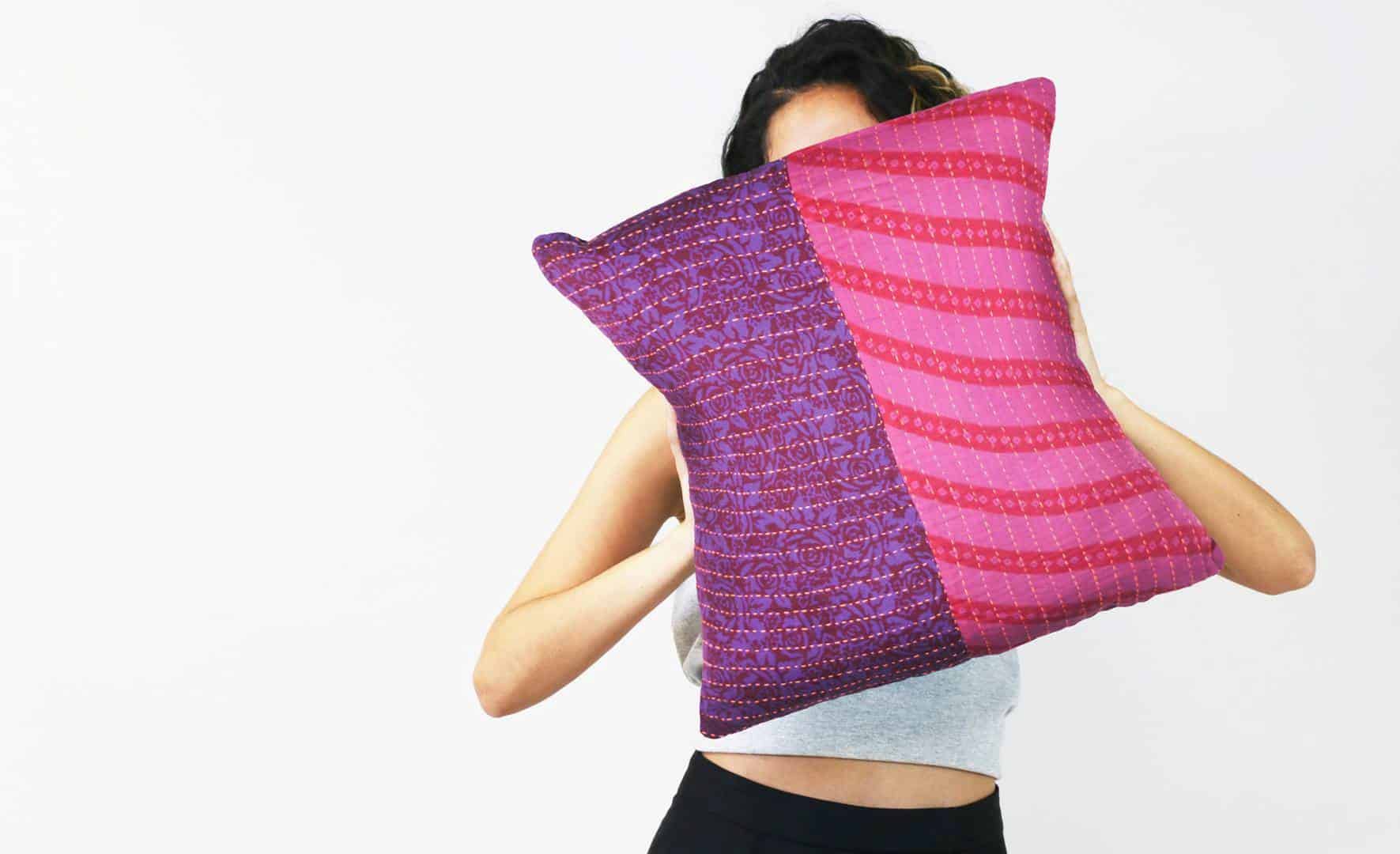
Q: The vibrant colors and designs of the products are outstanding. Do all the founders of the project have a design background? How familiar were the artisans with “design” when you were first introduced to them?
Though Anchal’s founders and current CEO & Creative Director all come from a design background, we believe that everyone is creative and acknowledge that design training is an invaluable life skill and entrepreneurial opportunity.
The majority of the women in our target community never finished elementary school and the average artisan dropped out of school around 2nd grade to earn an income and help with the family. Having a background in design, Anchal feels strongly about teaching these skills to the women we work with. We want the artisans to be able to make conscious design decisions themselves and use the skills to find new jobs beyond our program.
Maggie Clines, our Creative Director, works very closely with the artisans. This past year while in India, she completed a 7-day intensive design training workshop with the artisans that covered basic topics like color theory, pattern creation and textile narratives.
The pattern making exercise specifically consisted of cut out shapes: a rectangle, diamond, and triangle. Each artisan made their own design by repeating the shape and again by working with a friend to combine their shapes.
It was quite a beautiful process watching the women instinctively create a pattern with their own set of rules. Some are more strict than others, but all depict creative confidence and promising design elements for future product designs. We truly want to empower these women to design their own products.
The textile narratives teach the interpretation and translation of one’s three-dimensional surroundings into two-dimensional quilted fabric collages. The goal is to build the artisan’s confidence to express their personal identities through fabric while creating unique works of art that tell the story of their culture and surroundings.
We encourage creative exploration during the workshops knowing the artisans will create far more interesting ideas than what we share. Many experienced artisans are now taking the lead on the new direction and design the composition of many of the products. Very exciting to see training in action.
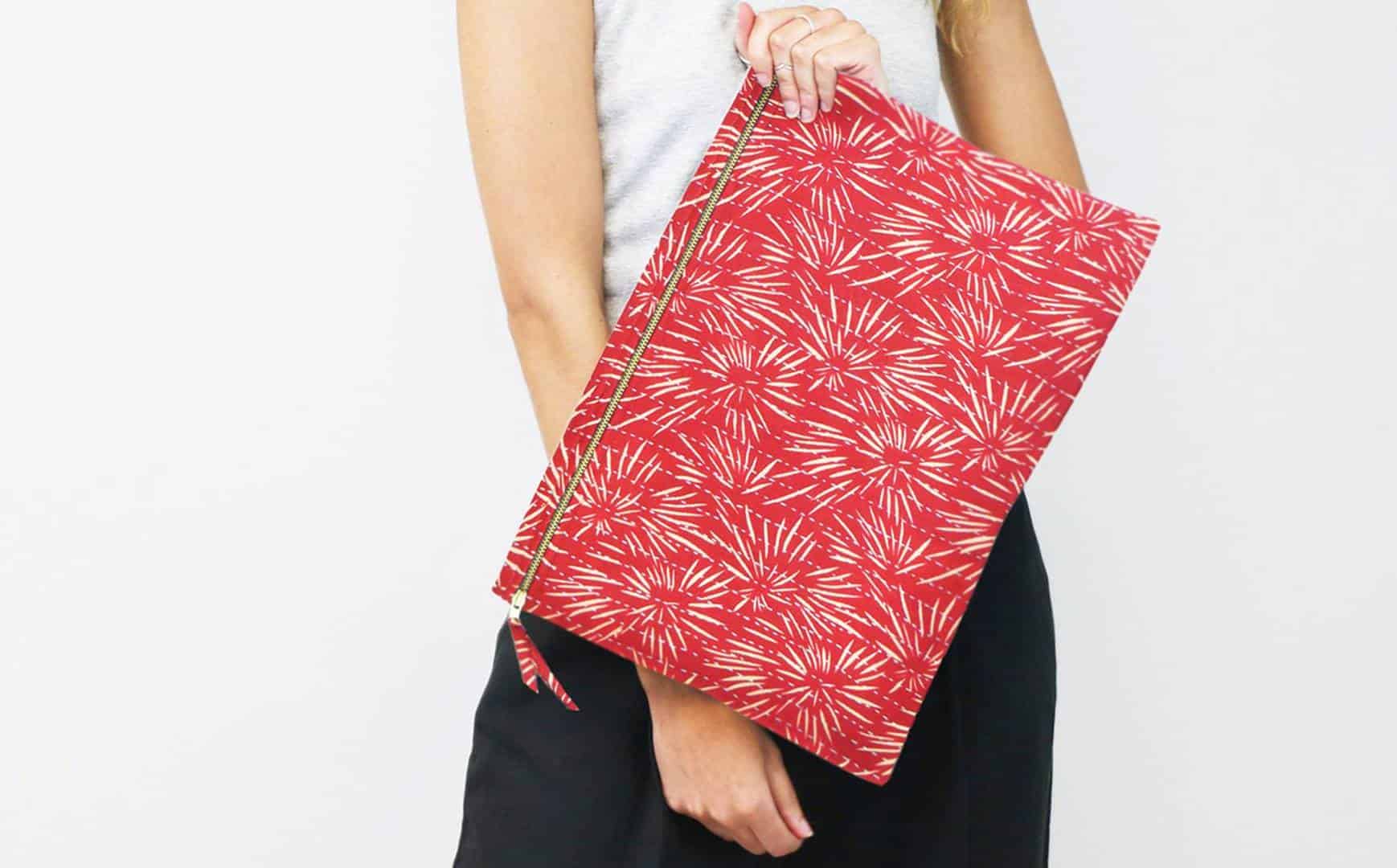
Q: A reason why I believe you have created something special is not just in the product, but in the empowerment of the artisans. The Anchal Project supplies them with design training, health benefits and education workshops. Were these benefits implemented right from the start or was it something that grew into existence as the project grew?
Anchal recognized quickly that a new job is not enough to help transcend years of exploitation – healing & knowledge is necessary. Initially we struggled with artisan retention so after the first six months,
Anchal started offering monthly educational workshops in leadership, financial planning, entrepreneurship, women’s health, self-defense and emotional/stress management, which reinforce the artisan’s independence and confidence. Stress Management workshops emphasize community building, support systems, dance and yoga. Financial planning workshops inspire the women to take control of their new income with lessons on budgeting, saving, managing credit and learning to negotiate.
All of the lessons taught give women the necessary tools to support an independent life.
The new-found sense of community that Anchal artisans experience is arguably the biggest benefit of our programming but is the most difficult to measure. Anchal fosters an environment where artisans can come together, share stories, laugh, cry, sing and bond with one another.
Women who were once competitors became co-workers, friends and now describe themselves as didis, sisters.
They encourage each other and discover their potential to be positive agents of change in their families and communities.
During the Anchal team’s last trip to India in 2015, artisan Shama shared with us: “Look at what we can do together. We’re really doing it.” This renewed sense of possibility invariably ripples out into the greater sex worker community, recruiting more artisans and leaving fewer and fewer behind.
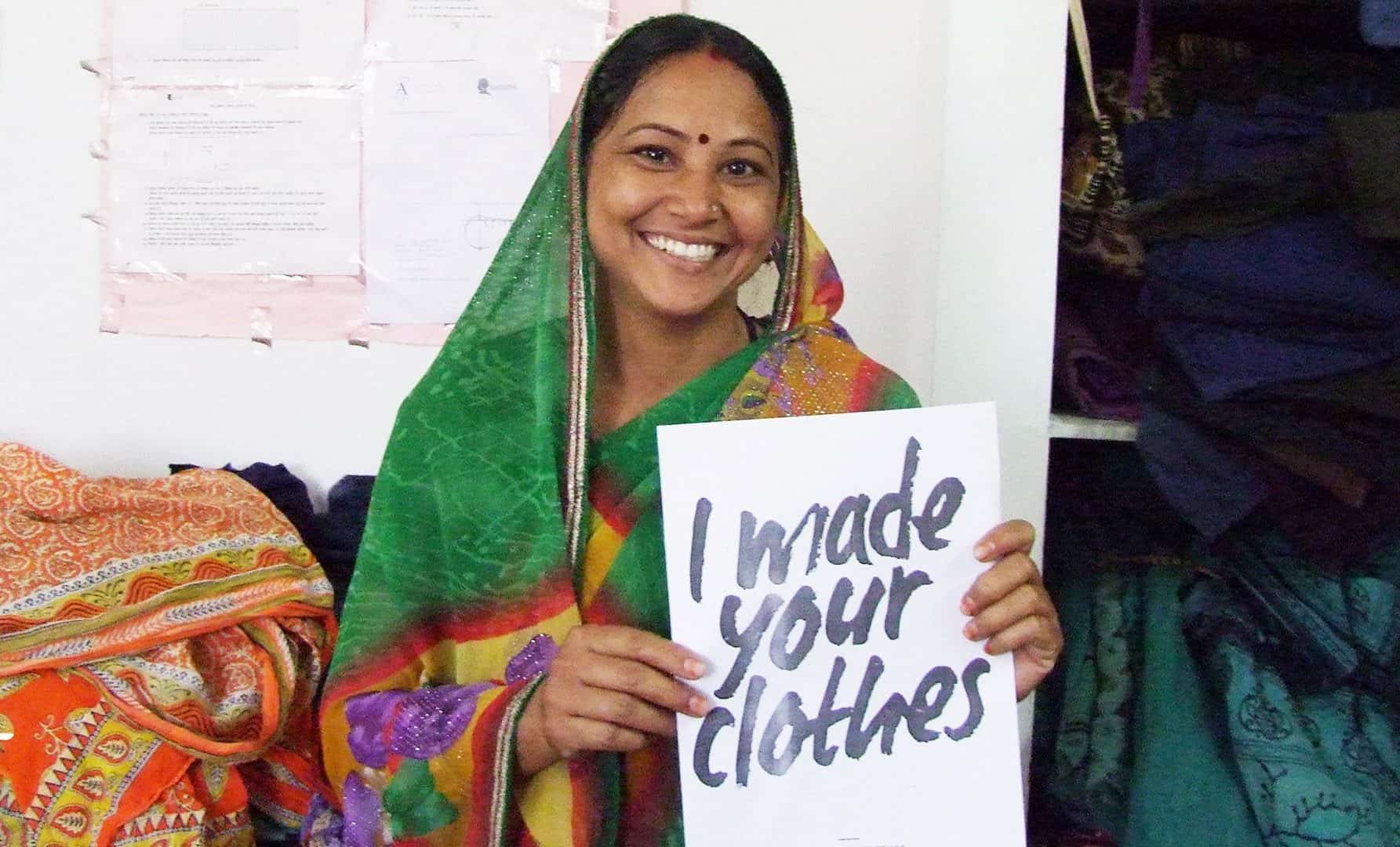
Q: You have just launched a new project called Designing Colorful Change. Can you talk about what new opportunities this project will bring and what is its overall goal?
Designing Colorful Change’s goal is to expand Anchal’s textile program to include new skills and careers in natural dyeing to commercial sex workers in Ajmer. Specifically, we will train and employ 35 new women in natural dyeing and offer the 100 current artisans the opportunity to expand their education in design and textiles over the next three years.
A natural dye initiative will also disrupt the harmful damages to the environment caused by industrialized dye production by promoting eco-friendly dyed products. The natural colors derived from native Indian plants will enhance Anchal’s textile repertoire for an increasingly expanded market and in turn greater impact.
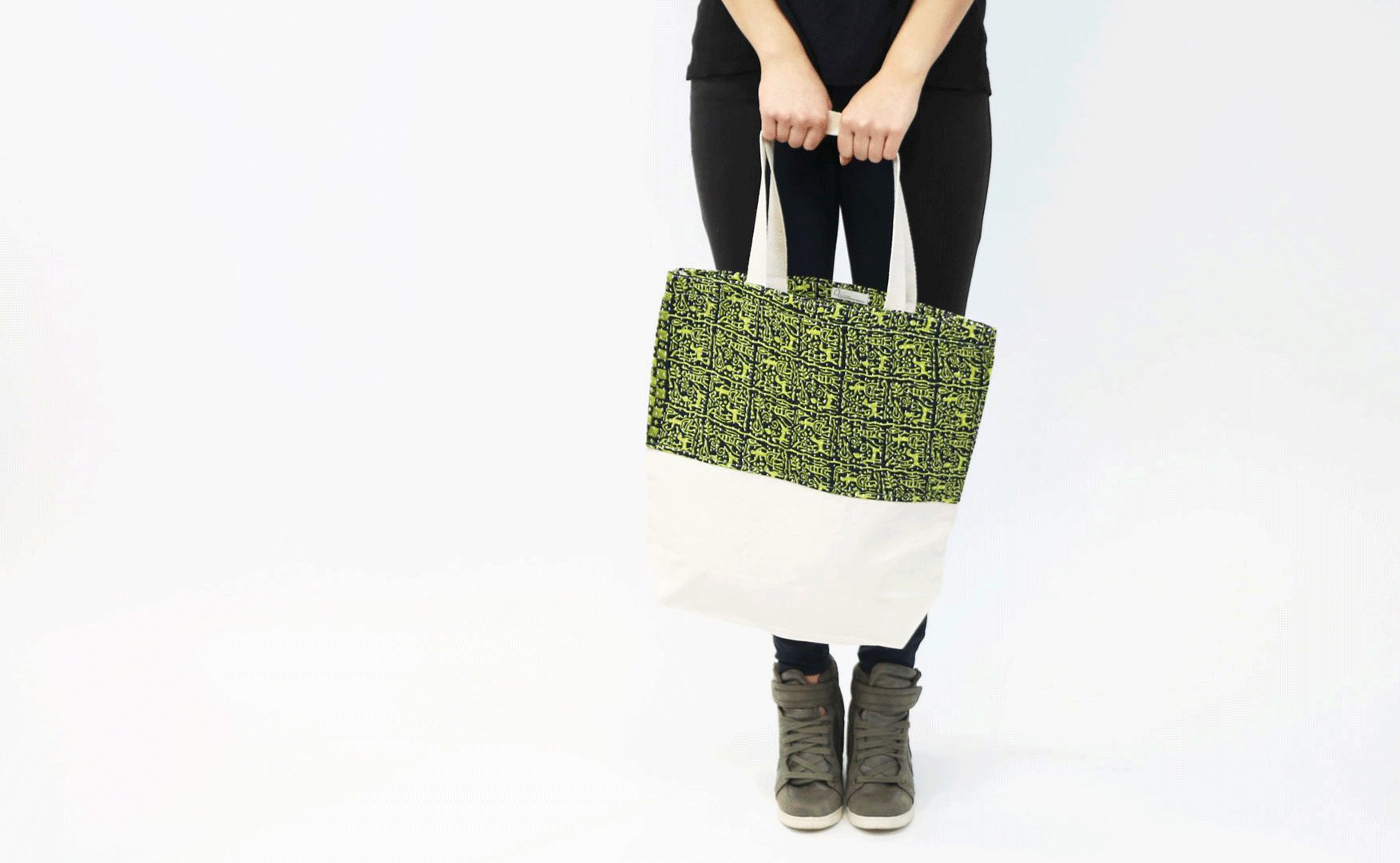
Q: The fashion/textile industry has always had a bit of a dark side. Do you feel the industry is trending to a better place? Do you feel like The Anchal project has the opportunity to be a leader in this sector going forward?
As worldwide consciousness shifts attention to integrating more holistic and environmental actions into our daily lives, it is vital to recognize everyday systems that can become more sustainable. We believe there is a strong movement rising in socially and environmentally conscious products because the public is demanding a change. However there is a long road ahead.
The costs of our textiles consumption is environmentally and socially detrimental. We believe that Anchal can become a leader in the sector by addressing both, regenerating lasting textile systems that eliminate the exploitation’s to humans and the planet. Anchal is confident that by sourcing recycled material, organic fibers, natural dyes, alongside creating quality fair trade textiles, together we can begin to offset the damages of the textile industry.
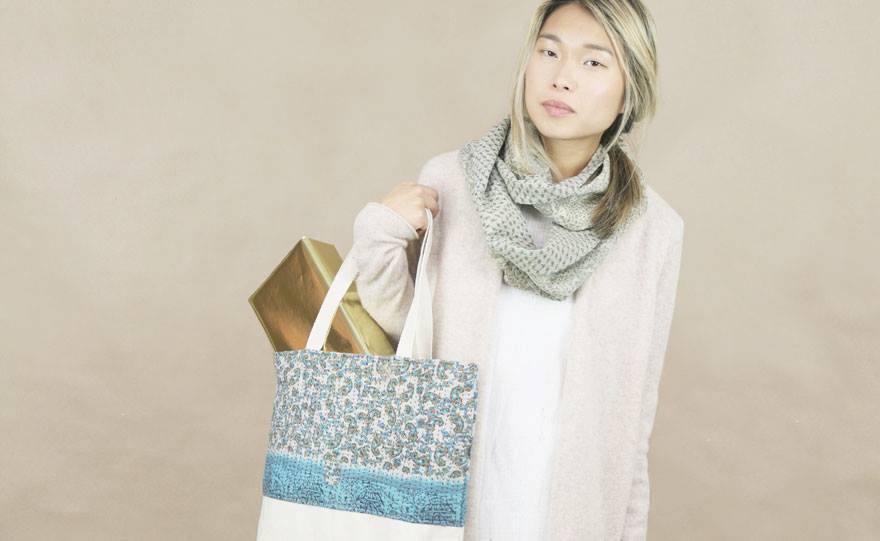
Q: Why did you choose to make The Anchal Project a non-profit and not a for profit social enterprise? Where their discussions about taking the for-profit business model approach?
Initially we made the decision to be a non-profit because we thought it was the only option. Remember that we came from a design background with minimal business savvy! We knew little about for-profit social enterprises in 2009.
Over the years there have been several discussions about the pros and cons to moving to a for-profit model, but at the end of the day we always come back to our initial decision. We believe that by being a non-profit, we are able to hold ourselves to a higher standard of accountability and transparency.
We also want to demonstrate that a non-profit can be a successful business and scale its impact just like a for-profit model.







